Redesigning the Municipality of Mesquita for Productive Justice: A Sustainable Urban Transformation
Productive Justice
“Productive justice for self-sufficiency” refers to the frameworks and practices aimed at enhancing individual and community self-reliance while promoting social justice.
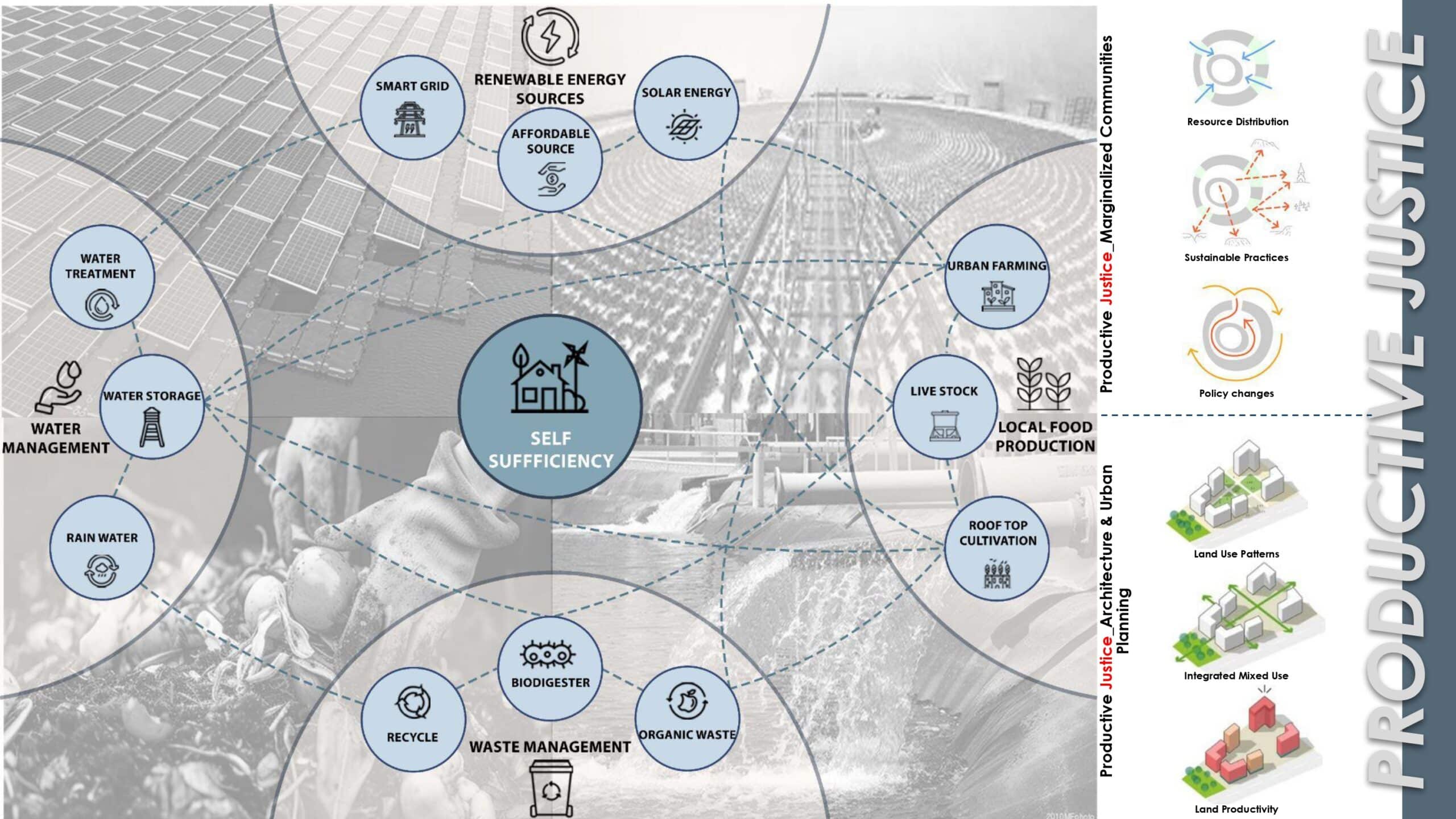
Productive Justice Through Architecture and Urban Planning
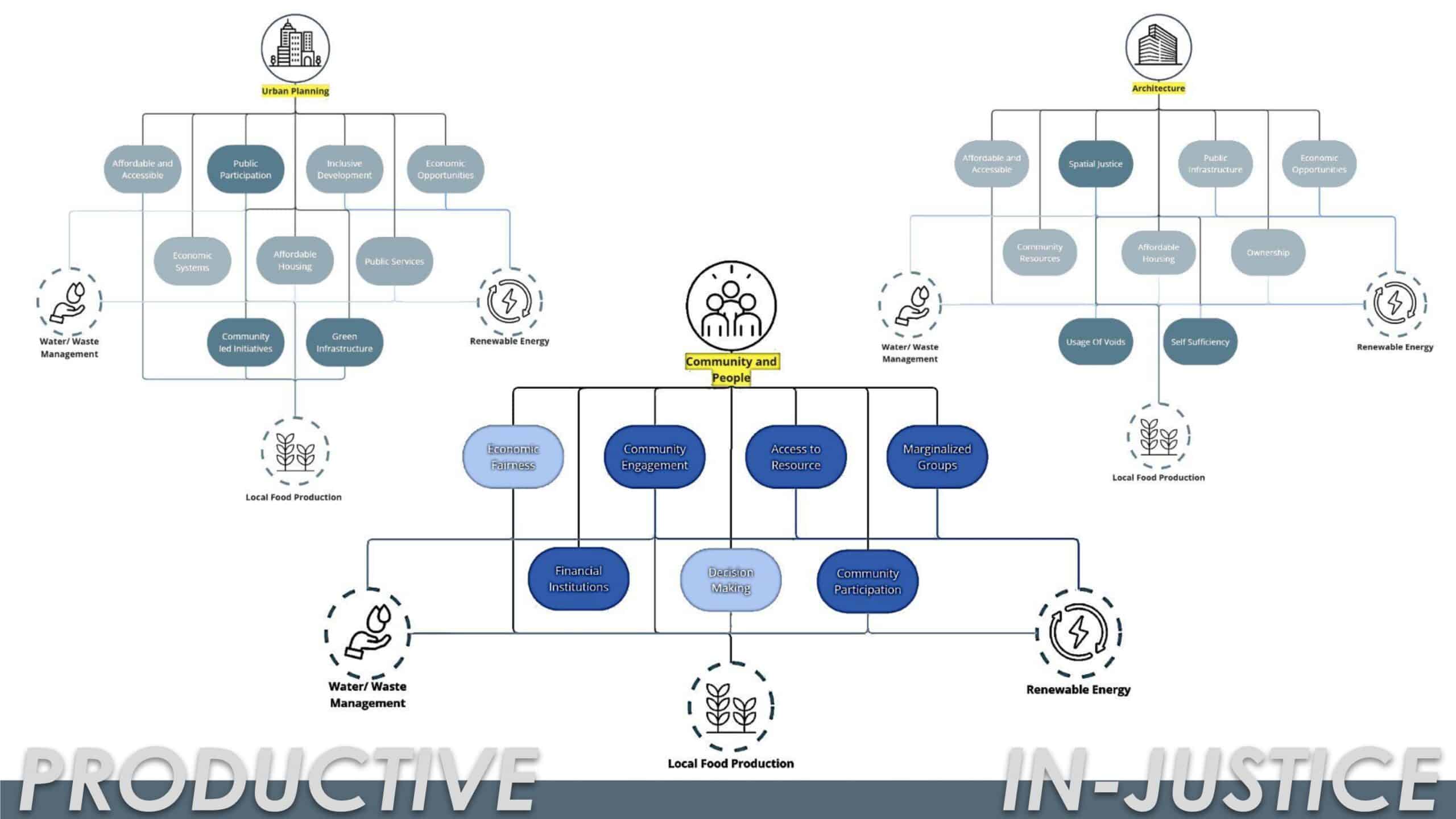
State Of The Art Collectives/Case Studies
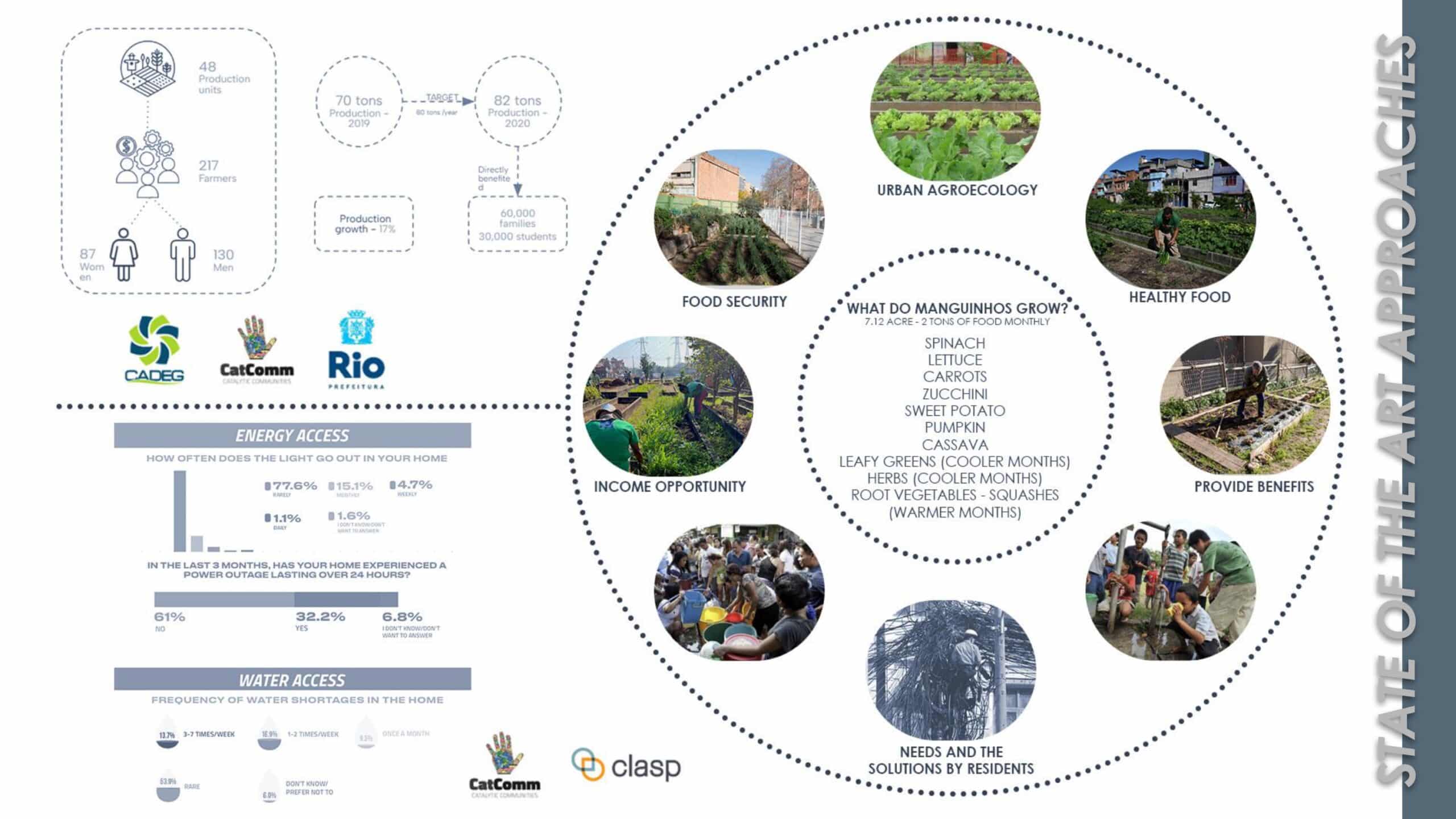
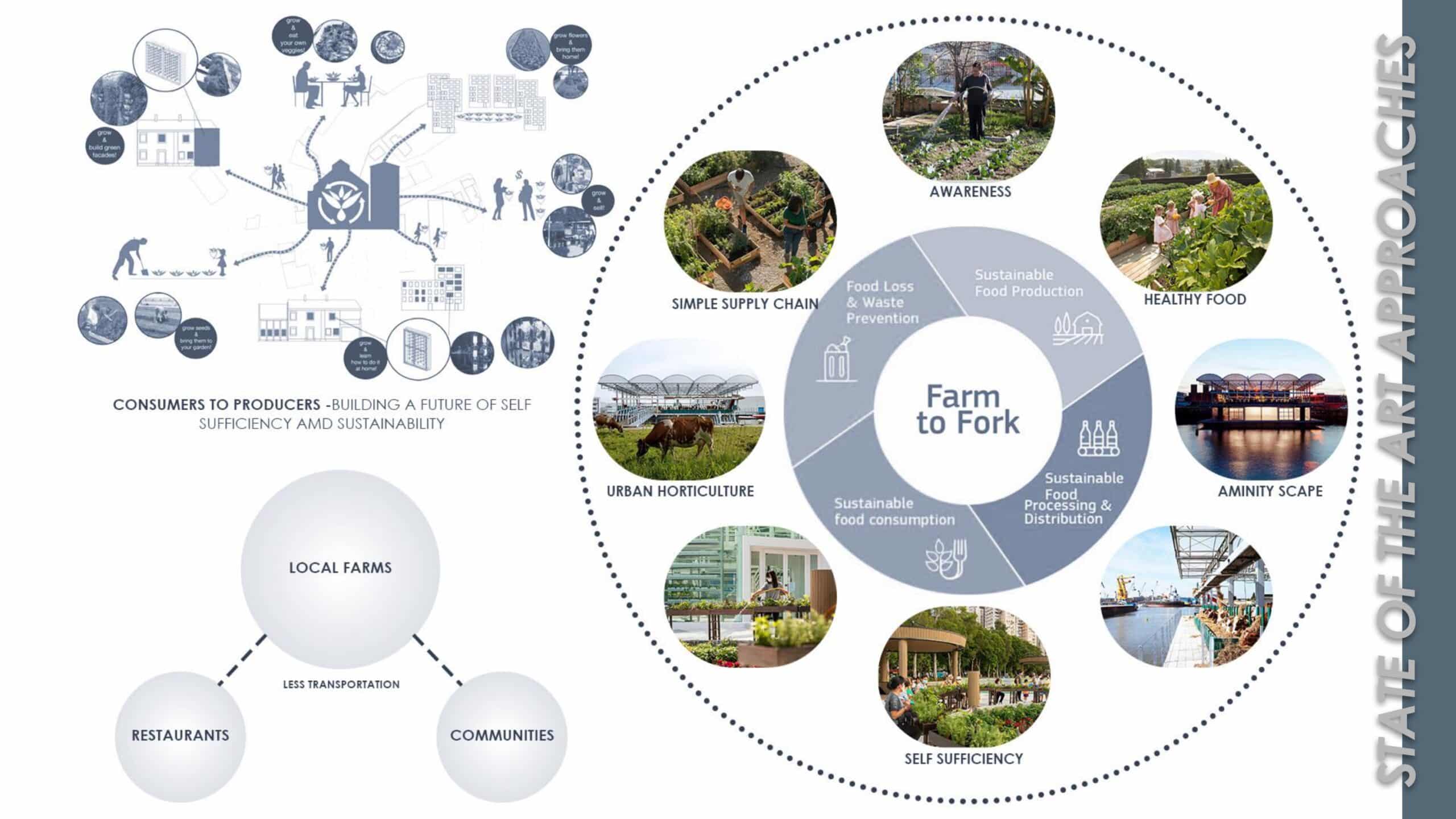
Rio De Janeiro _Productivity
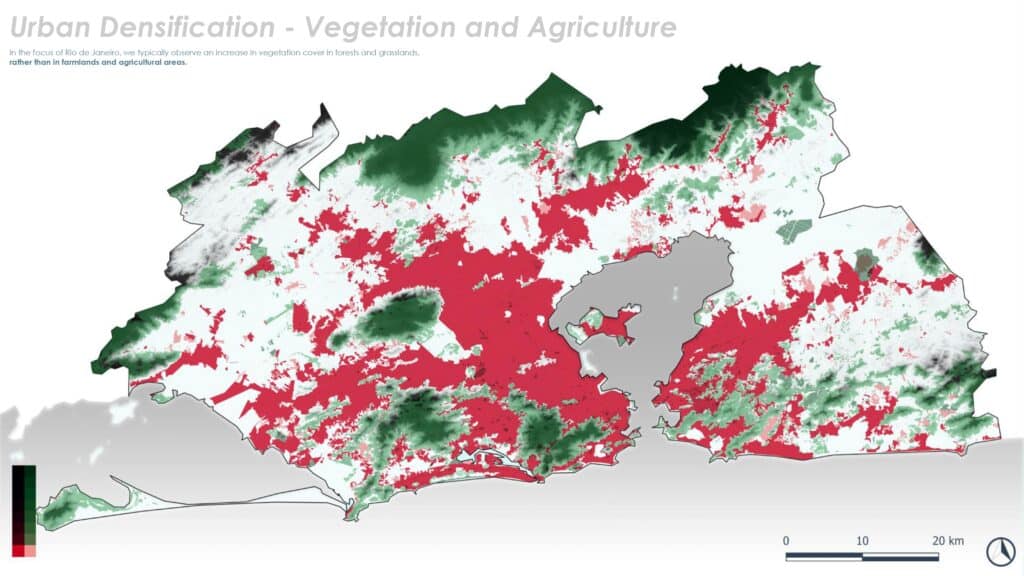
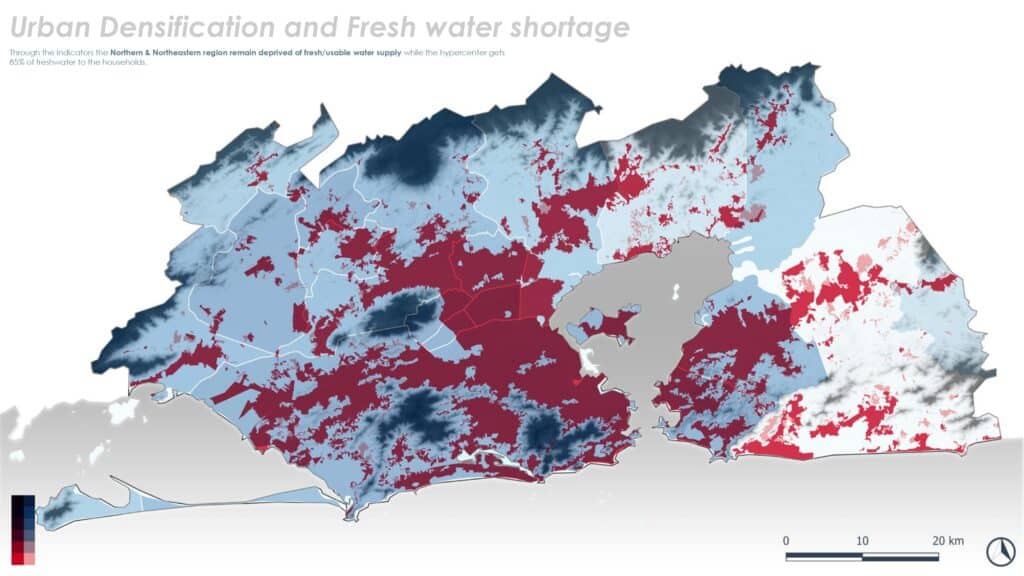
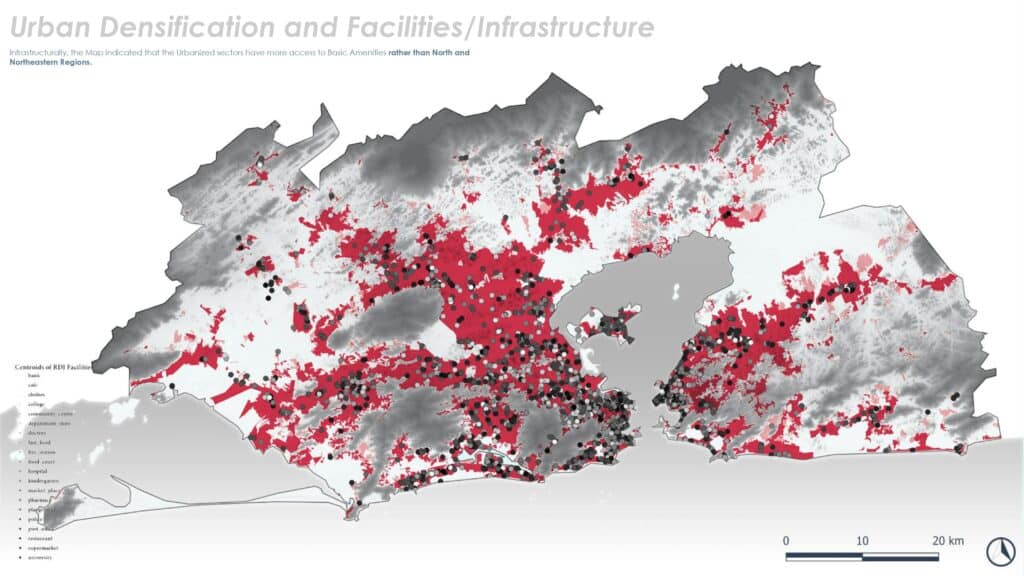
Focused Research on Zona Norte/North Zone
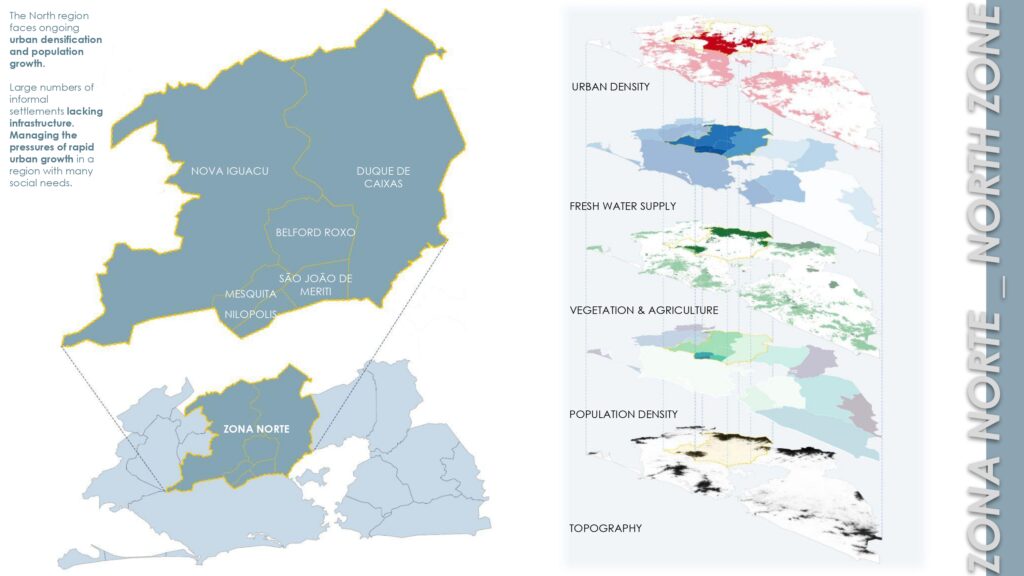
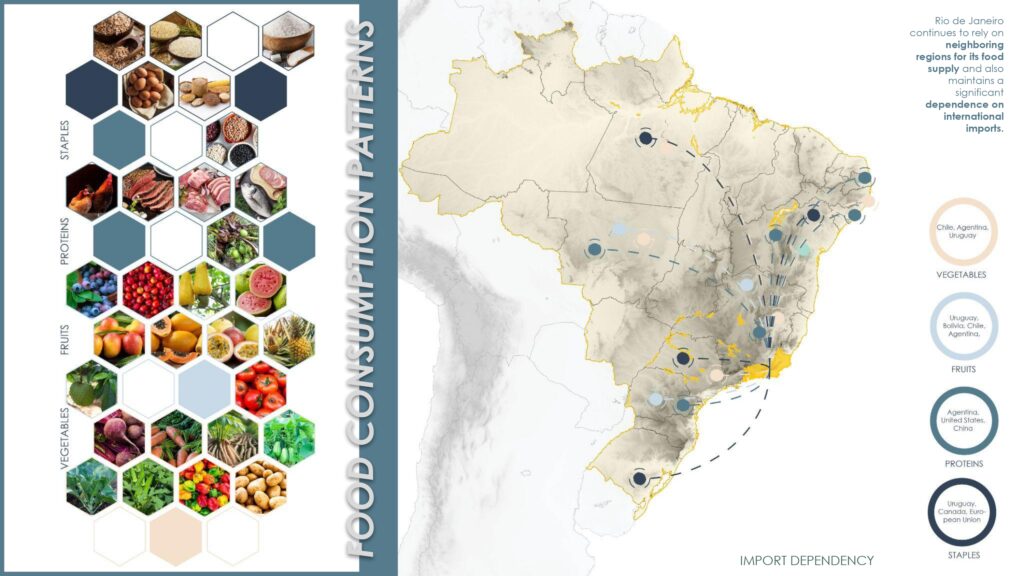
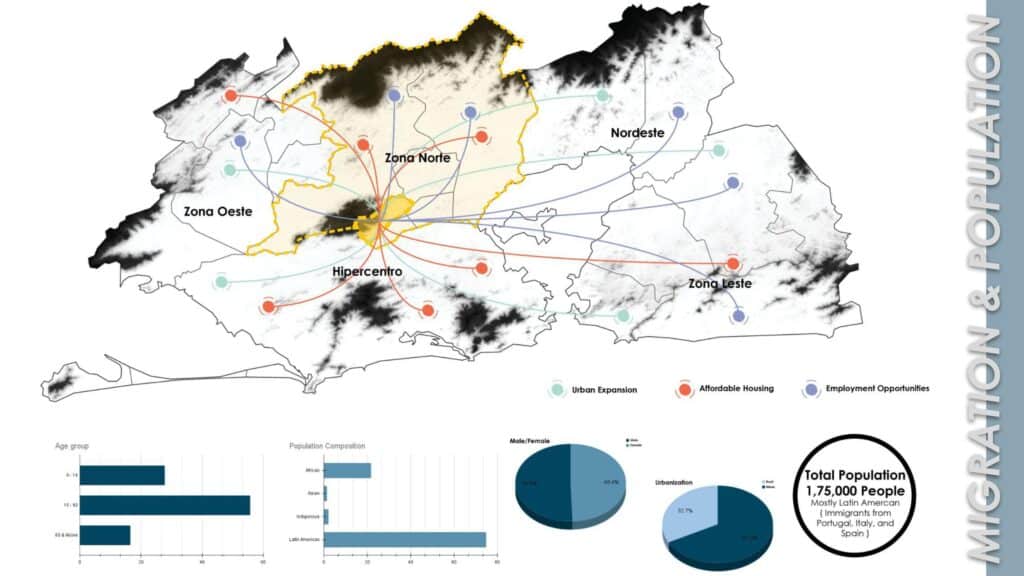
The Municipality of Mesquita
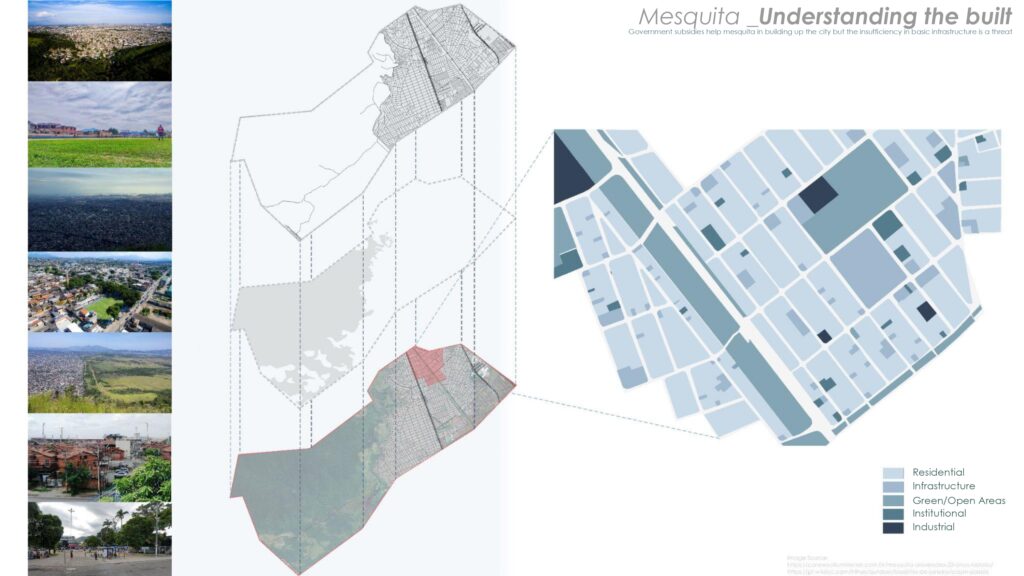
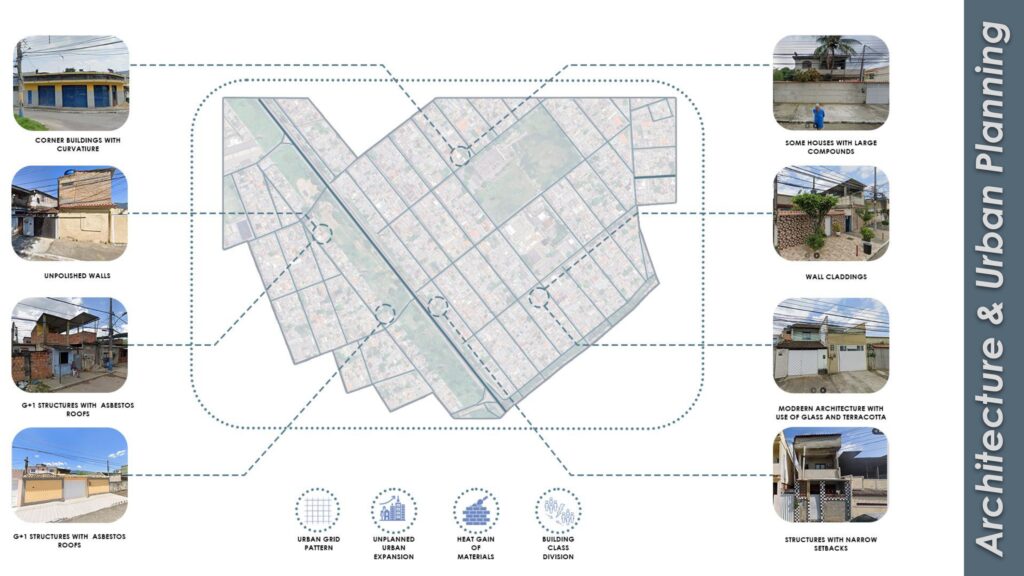
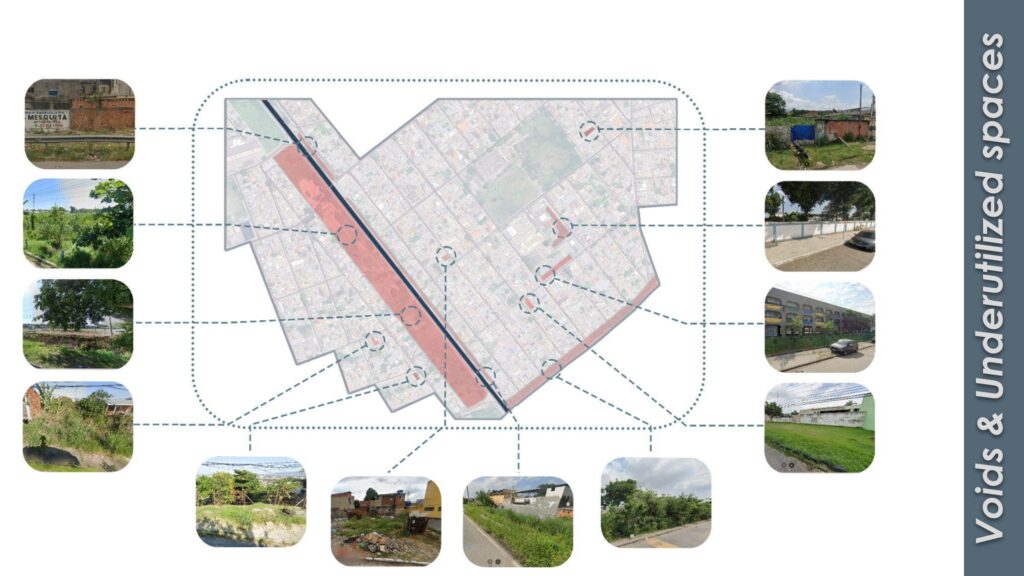
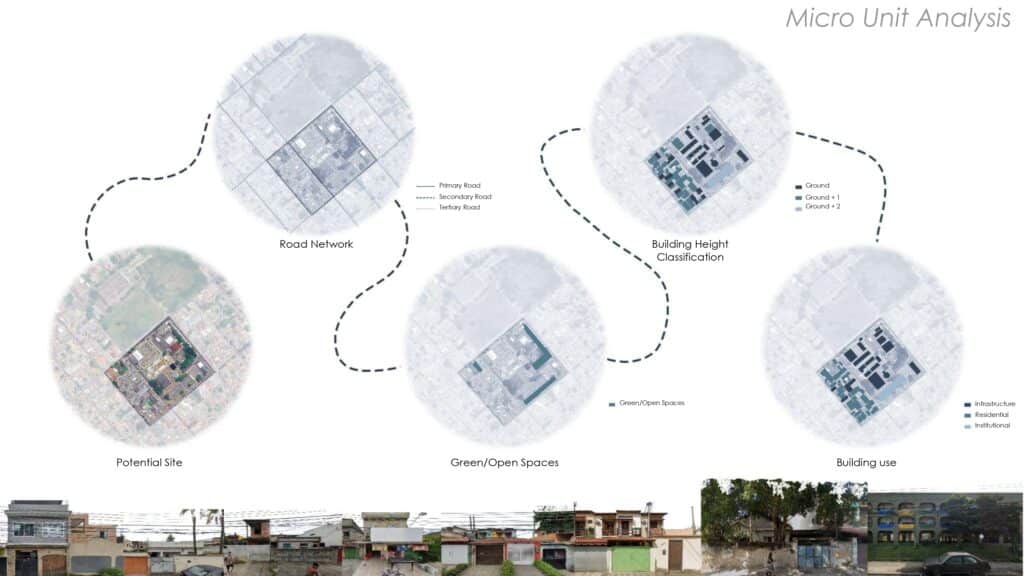
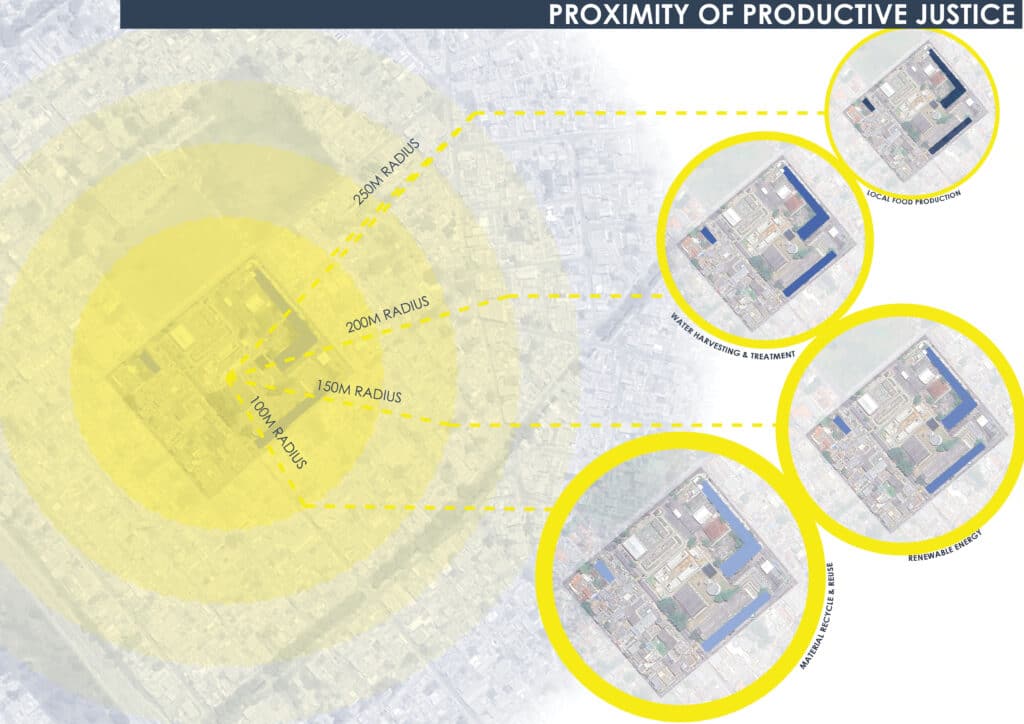
Proposed Strategy
Redesigning the Municipality of Mesquita for Productive Justice: A Sustainable Urban Transformation
Mesquita, a municipality in Brazil, presents an opportunity for an urban-scale redevelopment that aligns with principles of productive justice. This approach seeks to ensure fair access to essential resources such as food, energy, water, and waste management while fostering economic resilience and environmental sustainability. The project envisions Mesquita as a model for integrated urban design by incorporating urban agriculture, renewable energy production, efficient waste management, and water conservation strategies.
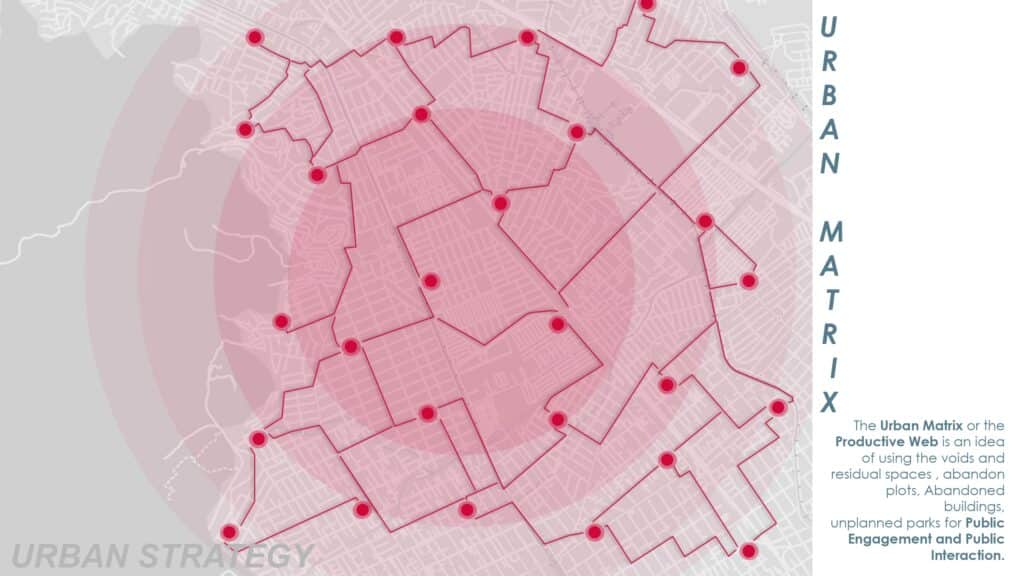
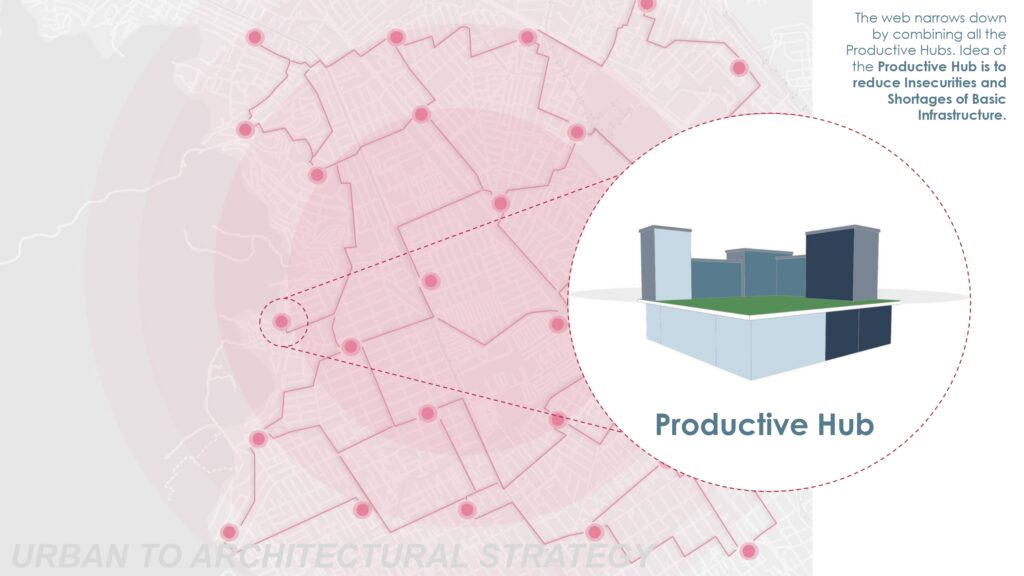
The Productive Web
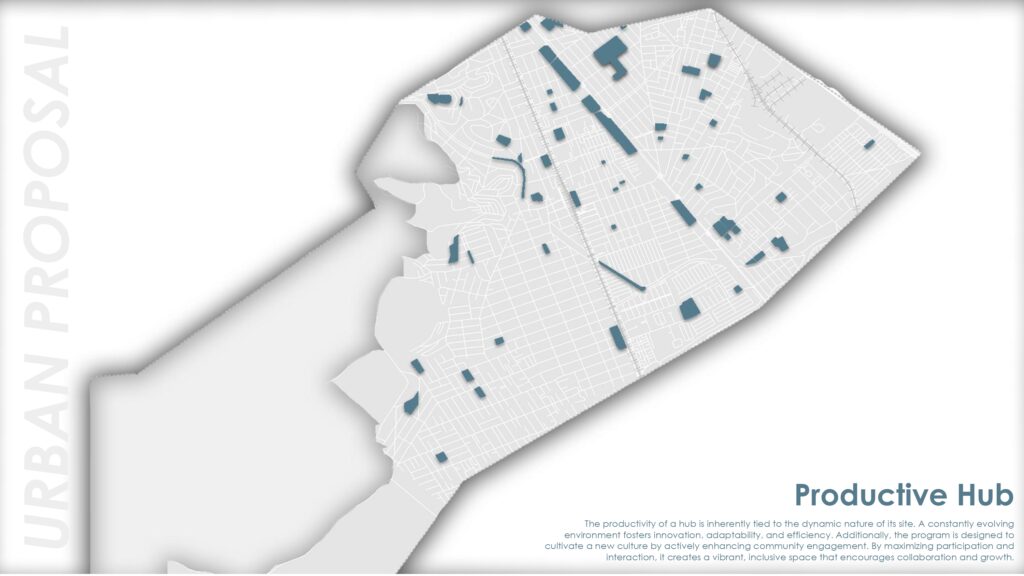
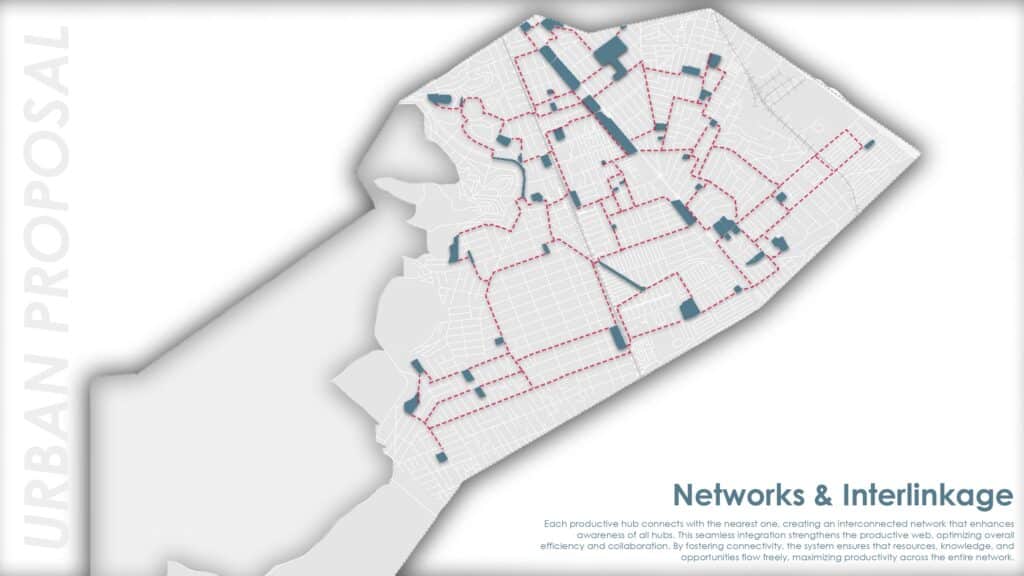
Proximity of Productive Hubs
Productivity is measured by assessing how much area or proximity it can effectively cover for the consumption of its produce. This evaluation helps determine the reach and impact of production, ensuring efficient distribution and utilization of resources within the designated space.
The Productive HUB
URBAN FOOD PROGRAM
A key component of the project is urban agriculture, which will enhance food security and promote economic empowerment. Community gardens and vertical farms will be established in vacant lots, rooftops, and underutilized public spaces. These spaces will be managed by local cooperatives, ensuring fresh produce is accessible to all citizens. Additionally, agroforestry systems along streets and parks will integrate fruit trees with native plants to support biodiversity and provide natural shading. Decentralized agricultural hubs equipped with hydroponic and aquaponic farming technologies will maximize productivity in limited urban spaces. Training centers will also be set up to teach farming techniques and provide entrepreneurial support to small-scale farmers and cooperatives.
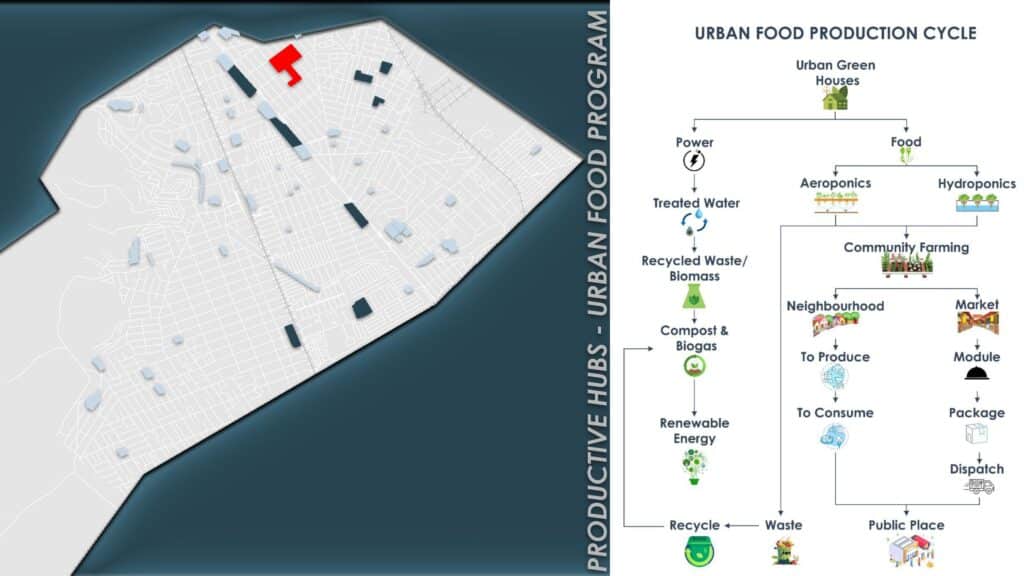
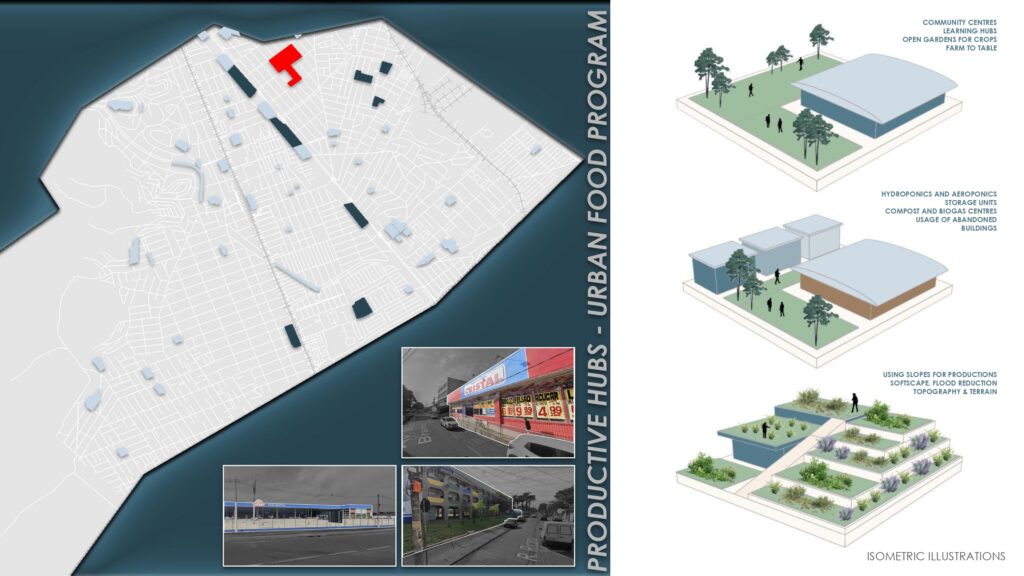
URBAN ENERGY PROGRAM
Renewable energy production is another crucial aspect of the redesign. Solar panels will be installed on residential, commercial, and public buildings to harness solar power. Biogas plants will convert organic waste into clean energy, addressing both waste management and energy needs. Small-scale wind turbines in strategic locations such as open fields and riverbanks will supplement power generation. Smart grids and energy cooperatives will allow residents to trade excess electricity and optimize energy consumption, creating a decentralized energy network that ensures self-sufficiency and sustainability.
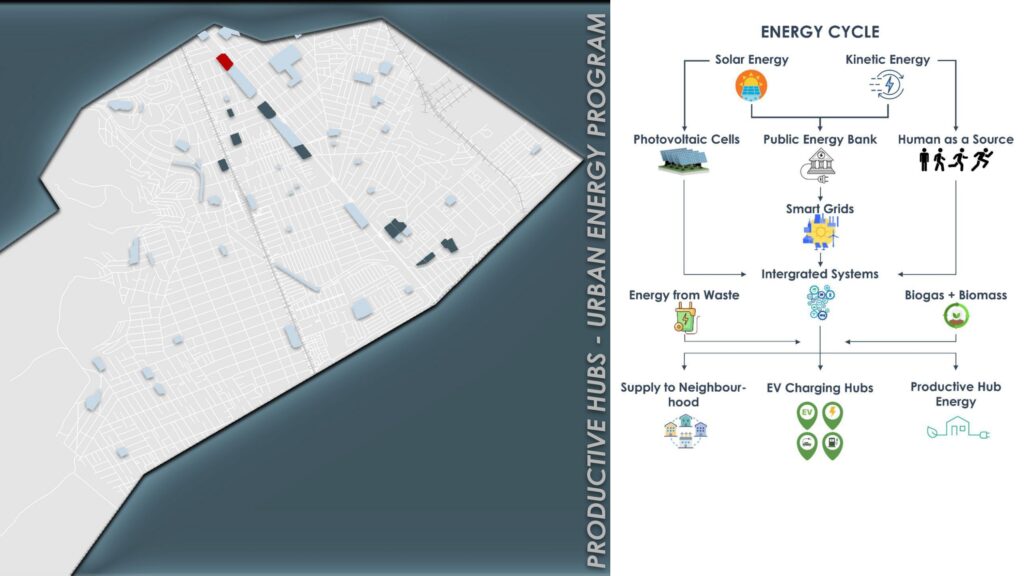
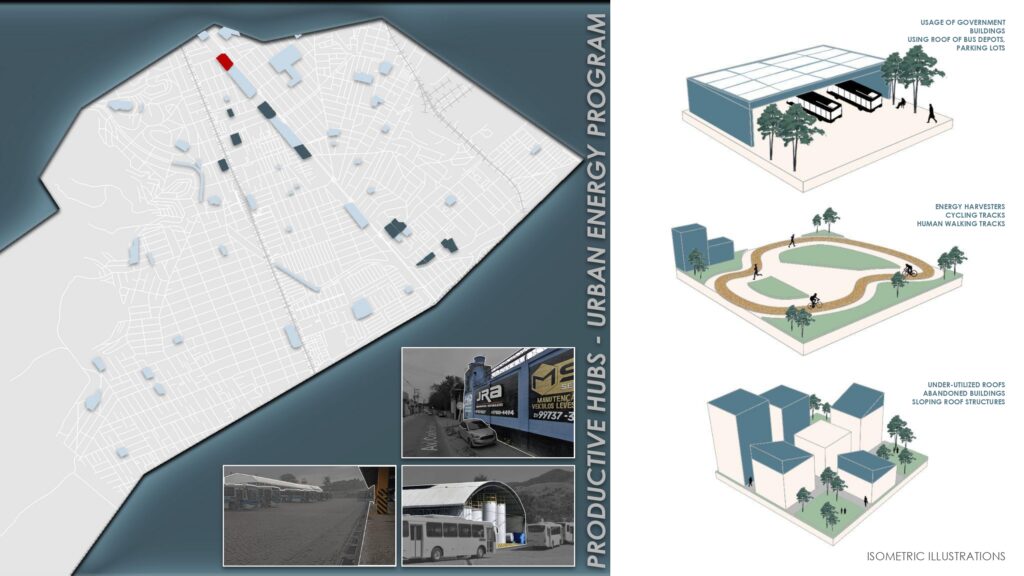
URBAN WATER PROGRAM
Water conservation and management will be prioritized to address concerns over scarcity and pollution. Rainwater harvesting systems will be installed on rooftops and public buildings to store water for irrigation and sanitation. Greywater recycling systems will repurpose wastewater for non-potable uses such as irrigation and flushing. Constructed wetlands will serve as natural wastewater treatment systems, using plant-based filtration methods to clean water before it is reintroduced into the ecosystem. Additionally, flood-resilient infrastructure, such as permeable pavements, bioswales, and green spaces, will enhance stormwater absorption and mitigate urban flooding.
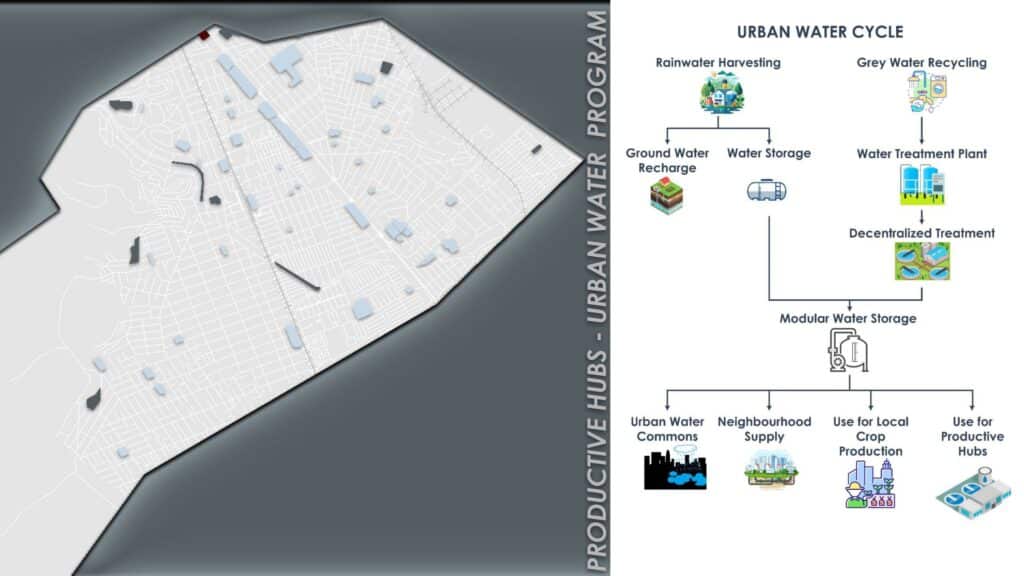

URBAN MATERIAL PROGRAM
Efficient waste management is essential for maintaining environmental health and promoting a circular economy. Composting hubs will process organic waste and produce biochar to enrich urban soils. Recycling and upcycling centers will provide facilities for sorting, repurposing, and processing materials while fostering local businesses that create new products from waste. Zero-waste policies will minimize landfill dependence by encouraging sustainable consumer habits and reusable packaging systems. Incentive programs will be introduced to encourage public participation in waste reduction and segregation efforts, ensuring a community-driven approach to waste management.
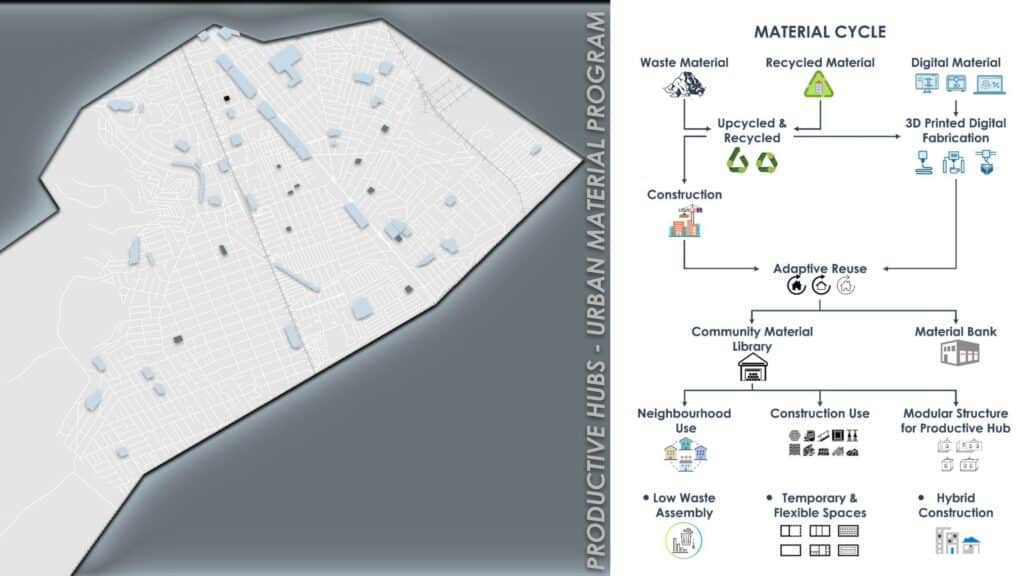
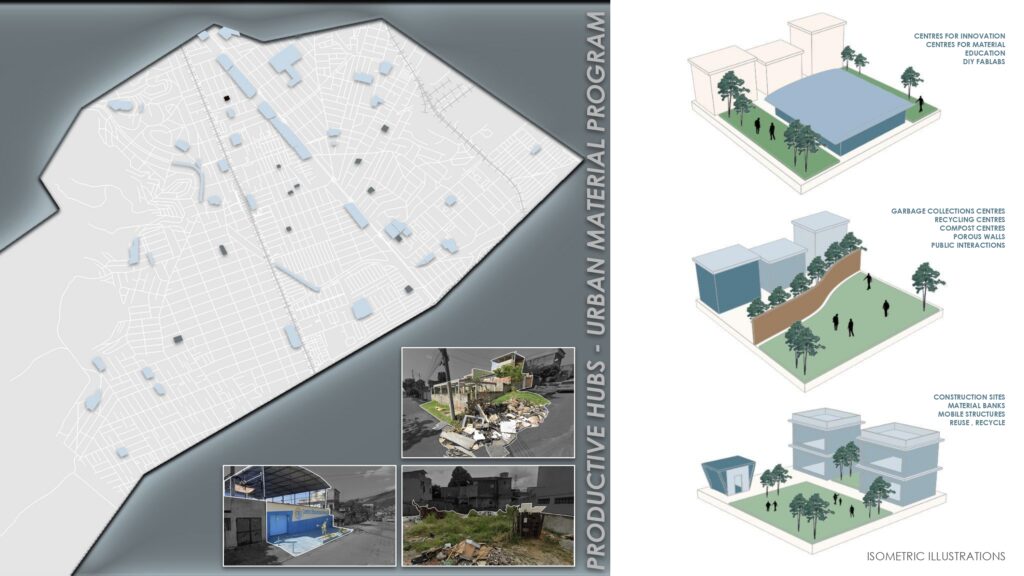
INTERLINKS WITHIN THE PROGRAMS_PROSPECTIVE CATALOGUE
Beyond infrastructure improvements, the project will foster social cohesion and economic empowerment. It will create jobs in urban agriculture, renewable energy, waste management, and water conservation, providing economic opportunities for local residents. Community engagement will be central to the redesign, ensuring that local voices shape the transformation process. Cultural and educational spaces such as urban farms, energy hubs, and water treatment facilities will serve as landmarks where residents can learn about sustainability. Collaborations with local governments will help implement policies that support equitable resource distribution and protect the rights of marginalized communities.
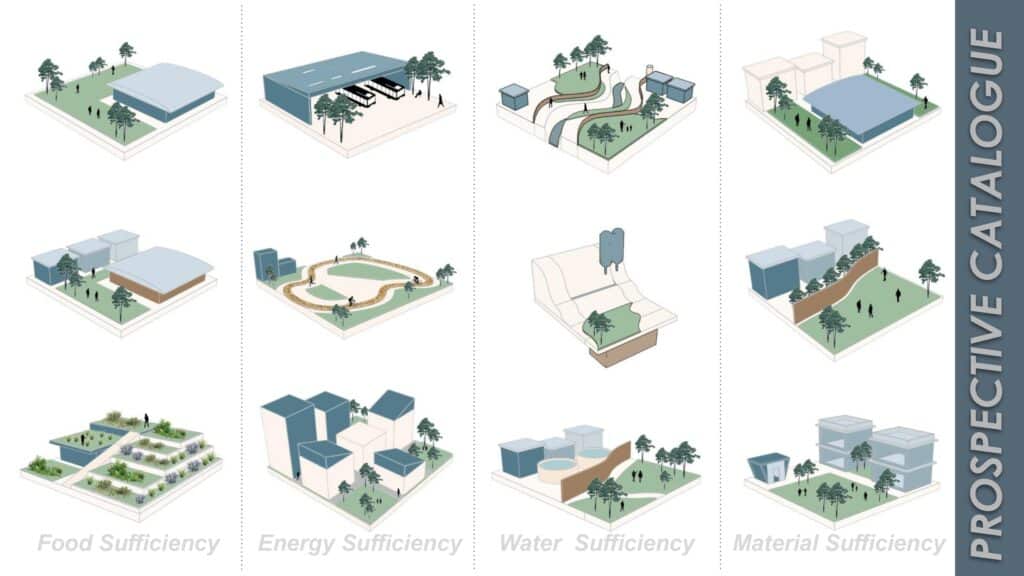
The proposed urban redesign of Mesquita embodies a vision of productive justice, where sustainability, equity, and economic resilience converge. By integrating urban agriculture, renewable energy, waste management, and water conservation, the project aims to transform Mesquita into a self-sufficient, climate-resilient, and socially inclusive municipality. This initiative serves as a replicable model for other urban areas seeking to balance environmental stewardship with economic and social justice.

